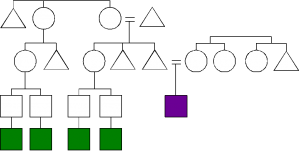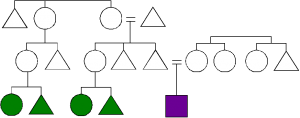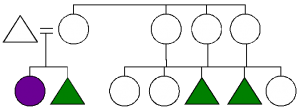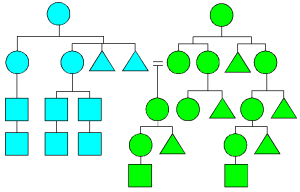![]()
![]()
![]()
![]()
![]()
![]()
![]()
![]()
![]()
jakewīren
the feeling one gets when one has had something added to one’s responsibilities; this can be a good feeling when one wants those responsibilities, or a bad feeling, when one is feeling burdened or overwhelmed. Sometimes jakewīren means both simultaneously – so the pride one has in one’s responsibilities plus the feeling of having too much to do, or stressed by one’s workload while also feeling good about how much one can handle.
sele jakewīren to [the length of my to-do list].




